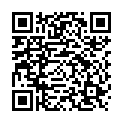|
|
|
| Module code: FT24.2 |
|
|
4V+1P (5 hours per week) |
|
6 |
| Semester: 5 |
| Mandatory course: yes |
Language of instruction:
German |
Assessment:
Written exam 120 min.
[updated 30.09.2020]
|
FT24.2 (P242-0013, P242-0014) Automotive Engineering, Bachelor, ASPO 01.10.2015
, semester 5, mandatory course
FT24.2 (P242-0013, P242-0014) Automotive Engineering, Bachelor, ASPO 01.04.2016
, semester 5, mandatory course
FT24.2 (P242-0013, P242-0014) Automotive Engineering, Bachelor, ASPO 01.10.2019
, semester 5, mandatory course
|
75 class hours (= 56.25 clock hours) over a 15-week period.
The total student study time is 180 hours (equivalent to 6 ECTS credits).
There are therefore 123.75 hours available for class preparation and follow-up work and exam preparation.
|
Recommended prerequisites (modules):
FT08 Fundamentals of Electrical Engineering and Vehicle Electrical and Electronic Systems
[updated 14.07.2015]
|
Recommended as prerequisite for:
FT30 Engineering Project in English
FT32 Bachelor Thesis
FT60
[updated 11.05.2019]
|
Module coordinator:
Prof. Dr. Hans-Werner Groh |
Lecturer:
Prof. Dr. Hans-Werner Groh
[updated 14.07.2015]
|
Learning outcomes:
After successfully completing this course, students will be able to:
- describe the basics of serial data communication forms in vehicles.
- evaluate bus systems with regard to their characteristics and the requirements of their use.
- understand the different data communication problems in a vehicle in comparison to data communication between vehicles or between a vehicle and its environment and derive criteria for the development of future communication systems.
[updated 30.09.2020]
|
Module content:
- Motivation for the use of serial bus systems
- Overview of the most important serial bus systems in cars
- Basics of serial communication, e.g. addressing, framing, data backup, bus access and synchronization
- Design of electronic control units, typical electronic architectures, network topologies and components, data communication reference model
- Structure and use of CAN technology, basic principles of the CAN protocol and how a CAN network works
- Structure and use of LIN technology, basic principles of the LIN protocol and how a LIN network works
- Structure and use of MOST technology, basic principles of the MOST protocol
- Vehicle diagnostic systems, on-board diagnosis (OBD), fault memory analysis
- Radio interfaces (Bluetooth)
- Communication between vehicles
- Communication between a vehicle and its environment
- Preparing the practical application of the acquired knowledge in subsequent laboratory courses (6th semester)
[updated 30.09.2020]
|
Teaching methods/Media:
Lecture notes and lab experiment
[updated 30.09.2020]
|
Recommended or required reading:
- Zimmermann, W., Schmidgall, R.: Bussysteme in der Fahrzeugtechnik, 4., akt. und erw. Aufl., 2011, Vieweg-Verlag, ISBN 978-3-8348-0907-0
- Lawrenz, W.: CAN Controller Area Network, Hüthig Verlag, 4., überarbeitete Auflage, Heidelberg, 2000, ISBN 3-7785-2780-0
[updated 30.09.2020]
|


